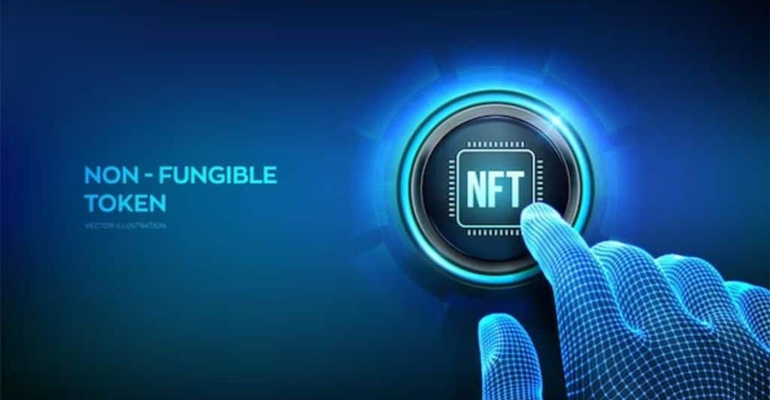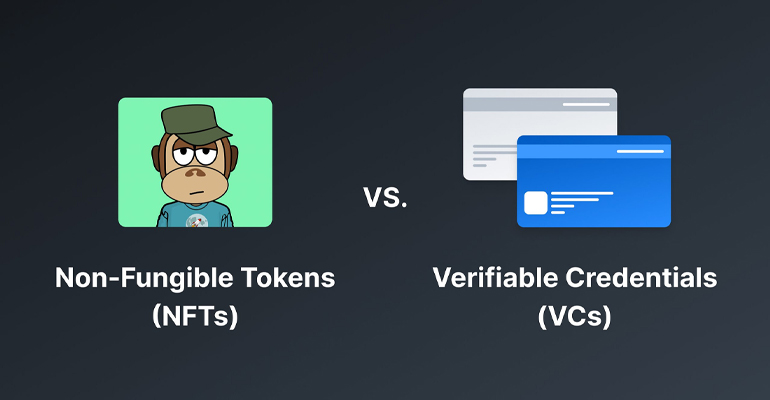In the rapidly evolving landscape of educational technology, a new player has entered the field: Non-Fungible Tokens (NFTs). These unique digital assets, built on blockchain technology, are reshaping various industries, and education is no exception. As we delve into the world of NFTs, we’ll explore their transformative potential in two crucial aspects of the edtech ecosystem: marketing and credentialing.
The education sector has always been at the forefront of adopting new technologies to enhance learning experiences and streamline administrative processes. With the rise of blockchain and its applications, we’re witnessing a paradigm shift in how educational institutions approach marketing strategies and credential issuance. NFTs, powered by blockchain, offer unprecedented opportunities for creating unique, verifiable, and immutable digital assets that can revolutionize how we perceive and interact with educational achievements and promotional content.
In this comprehensive exploration, we’ll uncover the innovative ways NFTs are being utilized in edtech marketing to create buzz, engage students, and differentiate institutions in a crowded market. We’ll also examine how these digital tokens are transforming the landscape of academic credentials, providing a secure and transparent method for issuing, sharing, and verifying educational accomplishments.
Join us as we navigate through the exciting intersection of NFTs, blockchain technology, and education, uncovering the challenges, opportunities, and potential future applications that lie ahead in this dynamic field.
Understanding NFTs and Blockchain Technology
To grasp the potential of NFTs in edtech, it’s crucial to understand the underlying technology that makes them possible: blockchain. Blockchain is a distributed, immutable ledger that records transactions across a network of computers. This technology ensures transparency, security, and decentralization, making it an ideal foundation for various applications, including cryptocurrencies and NFTs.
NFTs, or Non-Fungible Tokens, are unique digital assets that represent ownership of a specific item or piece of content. Unlike cryptocurrencies such as Bitcoin, which are fungible (interchangeable), each NFT is distinct and cannot be exchanged on a like-for-like basis. This uniqueness is what makes NFTs so valuable in various contexts, including art, collectibles, and now, education.

Key features of blockchain technology that make it valuable for edtech include:
- Immutability: Once data is recorded on the blockchain, it cannot be altered or deleted, ensuring the integrity of educational records and credentials.
- Transparency: All transactions on the blockchain are visible to network participants, promoting trust and accountability.
- Decentralization: No single entity controls the blockchain, reducing the risk of data manipulation or loss.
- Smart Contracts: Self-executing contracts with the terms of the agreement directly written into code, enabling automated and trustless transactions.
NFTs leverage these blockchain capabilities to create verifiable, unique digital assets. In the context of education, this opens up exciting possibilities for both marketing and credentialing:
- Marketing: NFTs can be used to create limited edition digital content, virtual experiences, or collectibles that promote educational institutions or programs.
- Credentialing: Academic achievements, certificates, and degrees can be issued as NFTs, providing a secure and easily verifiable record of accomplishments.
As we delve deeper into the applications of NFTs in edtech, keep in mind that the underlying blockchain technology is what enables these innovative use cases. The combination of blockchain’s security and transparency with the uniqueness of NFTs creates a powerful tool for transforming how we approach education in the digital age.
The Current State of Edtech Marketing
The educational technology (edtech) sector has experienced unprecedented growth in recent years, accelerated by the global shift towards online learning. This expansion has led to a highly competitive market where effective marketing strategies are crucial for success. Let’s examine the current landscape of edtech marketing:
- Digital-First Approach: With the target audience increasingly online, edtech companies have embraced digital marketing channels. Social media campaigns, content marketing, and search engine optimization (SEO) are now standard practices in the industry.
- Content Marketing: Educational content serves as both a marketing tool and a product sample. Webinars, blogs, and YouTube tutorials are common strategies to showcase expertise and attract potential customers.
- Personalization: Leveraging data analytics and AI, edtech companies are creating personalized marketing experiences. This includes targeted ads, customized email campaigns, and personalized content recommendations.
- Influencer Partnerships: Collaborations with educators, thought leaders, and even students have become a popular way to reach and engage target audiences authentically.
- Freemium Models: Many edtech platforms offer free basic services to attract users, with the goal of converting them to paid subscribers for premium features.
- Virtual Events: Online conferences, virtual open days, and digital campus tours have become essential marketing tools, especially in the wake of global events limiting in-person interactions.
- Mobile-First Strategies: With the increasing use of smartphones for learning, edtech marketing has had to adapt to mobile platforms, optimizing for app stores and mobile user experiences.
- Gamification: Some edtech marketers are incorporating game-like elements into their campaigns to increase engagement and make learning more appealing.

While these strategies have been effective, the edtech market is becoming saturated, making it increasingly challenging for companies to stand out. This is where innovative approaches leveraging new technologies like blockchain come into play. The integration of NFTs and blockchain technology in edtech marketing represents a new frontier, offering unique opportunities to engage audiences and differentiate in a crowded market.
As we explore the potential of NFTs in edtech marketing, it’s important to consider how these new tools can complement and enhance existing strategies, creating a more dynamic and effective marketing ecosystem for educational technology.
NFTs as a Marketing Tool in Edtech
The integration of NFTs into edtech marketing strategies represents a groundbreaking approach that leverages the unique properties of blockchain technology. By utilizing NFTs, educational institutions and edtech companies can create innovative campaigns that not only capture attention but also provide tangible value to their audience. Here’s how NFTs are revolutionizing edtech marketing:
- Limited Edition Digital Collectibles: Educational institutions can create unique digital collectibles as NFTs, such as virtual campus landmarks, mascots, or historical moments. These limited-edition items can generate buzz and foster a sense of community and exclusivity among students and alumni.
- Gamified Learning Experiences: NFTs can be incorporated into educational games or challenges, where learners earn unique tokens for completing courses or achieving specific milestones. This gamification aspect can significantly boost engagement and motivation.
- Virtual Event Access: Exclusive access to virtual events, webinars, or masterclasses can be granted through NFT ownership. This creates a new way to monetize and control access to premium educational content.
- Blockchain-Verified Achievements: Minor certifications or badges can be issued as NFTs, allowing students to showcase their learning journey. These blockchain-verified achievements can be shared on social media or professional networks, extending the reach of the institution’s brand.
- Tokenized Scholarships: Institutions can offer scholarships or grants in the form of NFTs, which not only provides financial aid but also serves as a unique marketing tool to attract top talent.
- Alumni Engagement: Universities can create NFT-based loyalty programs for alumni, offering exclusive benefits and fostering continued engagement with the institution.
- Fundraising Campaigns: Educational organizations can auction unique NFTs to raise funds for specific projects or initiatives, creating a new channel for philanthropic engagement.
- Interactive Course Previews: Course content previews or interactive syllabi can be tokenized as NFTs, giving potential students a taste of the curriculum in an engaging, collectible format.
- Virtual Campus Tours: NFTs can be used to create interactive, tokenized virtual campus tours, allowing prospective students to explore and “own” pieces of the digital campus experience.
- Collaboration with Digital Artists: Partnerships with digital artists to create education-themed NFT collections can attract attention from both the art world and potential students, broadening the institution’s reach.

By leveraging blockchain technology through NFTs, edtech marketers can create campaigns that are not only attention-grabbing but also provide lasting value. These digital assets can serve as powerful tools for brand building, community engagement, and lead generation in the competitive edtech landscape.
As the edtech sector continues to evolve, those who successfully integrate NFTs into their marketing strategies may find themselves at a significant advantage, offering unique experiences that resonate with the digital-native generation of learners.

